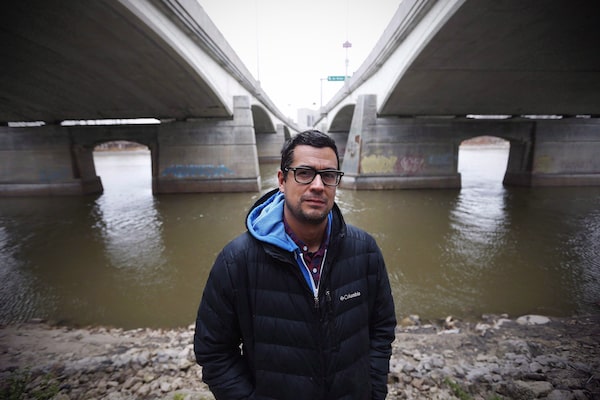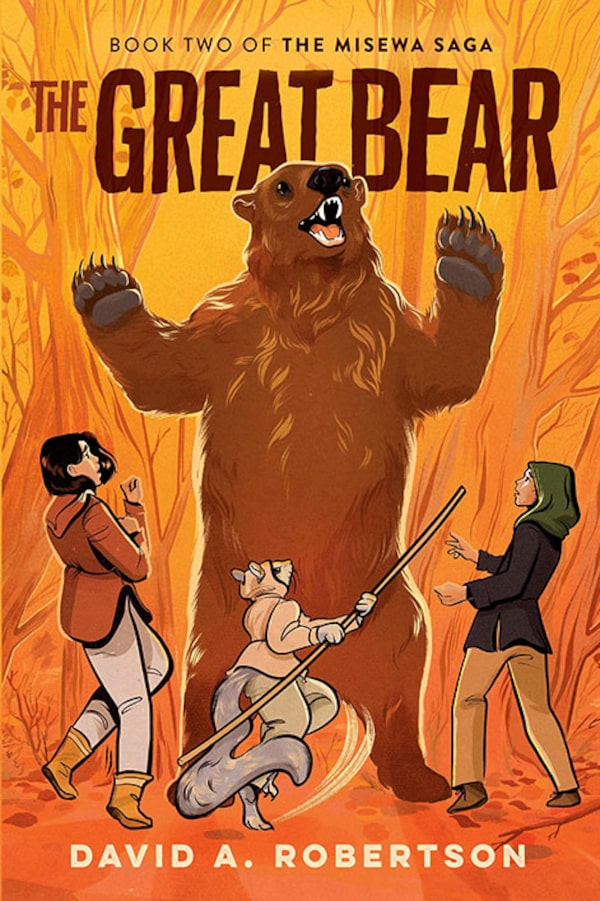
Award-winning Indigenous author David Alexander Robertson.JOHN WOODS/The Canadian Press
Indigenous author David A. Robertson says it’s a “really good start” that his book The Great Bear is back on shelves in Durham District School Board libraries. But he is still looking for answers about the controversy, and is calling for greater transparency in such matters.
The school board announced on Wednesday that it was returning The Great Bear and two other books to circulation in its libraries, after the books were temporarily removed and put under review. The removal followed complaints from some Indigenous families, the board had said.
The complaints, the board has revealed, had to do with concerns related to Indigenous stereotypes and terminology that could perpetuate discrimination. But Robertson said he is not clear on what the specific issue was with his book.
“People are owed an explanation about why this was done, and hopefully going forward that’s something that will come out,” Robertson said in an interview on Wednesday. “I think people deserve to know. And I think kids deserve to know ... why that book was pulled.” Librarians and teachers too, he added.
The Durham board issued a statement saying the decision to return the books was made after an accelerated review process with some members of the local Indigenous community.
Robertson, who is a member of the Norway House Cree Nation, said he in no way discounts any complaints, but adds that they should not have led to the book’s widespread removal. “If a few students were triggered by something in The Great Bear, that shouldn’t have affected an entire school division. It shouldn’t have affected every single kid in that school division,” he said. “There were better ways to do it.”

Handout
The Great Bear, the second book in Robertson’s Narnia-inspired Misewa Saga, was removed in late March from school libraries in the public school district east of Toronto.
Two other books were also removed: Louis Riel et le pays improbable by award-winning Montreal writer André Leblanc, and Sisters of the Wolf, described as a YA prehistoric adventure novel set in Ice Age Europe by Saskatchewan-based author Patricia Miller-Schroeder.
Robertson said he felt he had to speak out when he learned this was happening – not from the school board officially, but through other channels. He said he felt he had a responsibility. “I didn’t want this to happen to other books,” said Robertson, who lives in Winnipeg.
“We don’t want to see that sort of censorship or book banning occurring in Canada. We don’t want to see that stuff trickling up from the United States; I don’t think that’s who we are as Canadians.”
The school board directed an interview request from The Globe and Mail to its public statement, which indicated that further consultation would take place in coming weeks. Robertson said he would be willing to work with the board to ensure things are handled differently in the future.
“There needs to be more transparency and a clear process and clear application of policy,” said Robertson, who has twice won the Governor-General’s Literary Award.
He says the controversy has personally taken a lot out of him, but he was also uplifted by all of the community support he received – from students, teachers, librarians, parents and others.
“A lot of people stood up with me,” he said, noting it had been an emotional time. “And I think this was a testament to community-building and what we can do together.”
Expand your mind and build your reading list with the Books newsletter. Sign up today.
 Marsha Lederman
Marsha Lederman